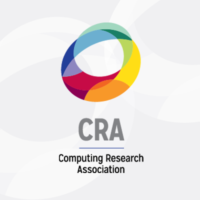CCC Receives $5 Million NSF Award to Continue Catalyzing the Research Community
By Haley Griffin, Program Associate, CCC, and Matt Hazenbush, Director of Communications
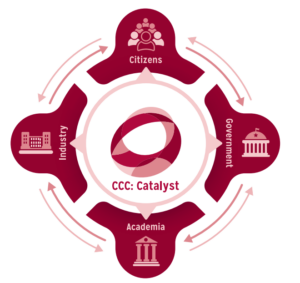 Following an intensive recompete process, the Computing Community Consortium (CCC) is pleased to announce it has been awarded a $5 million grant from the National Science Foundation (NSF) to continue serving the computing research community for another two years.
Following an intensive recompete process, the Computing Community Consortium (CCC) is pleased to announce it has been awarded a $5 million grant from the National Science Foundation (NSF) to continue serving the computing research community for another two years.
Building on CCC’s strong track record of impact, the new award will enable the implementation of several notable enhancements to CCC operations, including strengthening its communications outreach and establishing a new evaluation strategy to support CCC’s continuous improvement.
“I’m very pleased to be continuing our partnership with NSF,” said Dan Lopresti, Professor of Computer Science and Engineering at Lehigh University, CRA Board Member, and CCC Chair. “NSF’s continued support of our work ensures that we will have the resources to fulfill our goals of broadening our reach and increasing our responsiveness to the evolving needs of the computing research community.”
A Powerful Convener
Since its founding in 2006 through a cooperative agreement between NSF and the Computing Research Association (CRA), CCC has held a unique position at the nexus of the computing research community, convening a wide range of experts from across the public, private, and government sectors. Over the course of its history, participation in CCC activities has steadily increased, and is poised for an acceleration in growth with the new NSF award.
“Since its founding, the CCC has aimed to inform and inspire diverse stakeholders within the broad computing research community.,” said Nadya Bliss, Executive Director of the Global Security Initiative at Arizona State University and CCC Vice Chair. “With NSF’s continued support, we are looking forward to scaling our impact and engaging an even wider network across sectors.”
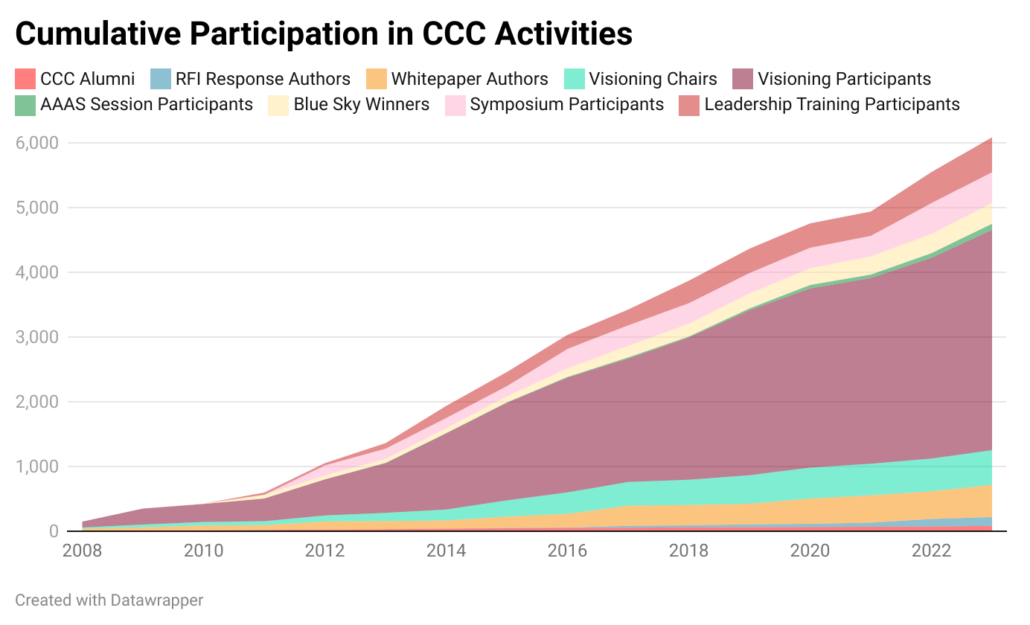
Articulating Compelling Research Visions and Developing New Talent
Aimed at addressing national and societal challenges, CCC creates visions for computing research and, in doing so, helps lay the groundwork for significant advances in the field of computing. Bringing necessary insights and expertise to bear on critical problem areas, the visioning activities provide a platform for the computing research community to express its priorities, while also developing future national leaders in the field.
“The CCC’s impact is in shaping the future of computing research, both in terms of articulating research visions and nurturing the pipeline of leaders,” said Lopresti.
This is done in part through involving early career researchers in visioning activities, including workshop leadership, and through the co-sponsorship of the Leadership in Science Policy Institute (LiSPI), which educates computing researchers on how science policy in the U.S. is formulated and how our government works.
Coming Together to Meet Pressing National and Global Challenges
The outputs of the CCC’s work–including workshop reports, white papers, high-level report-outs, presentation briefs, videos, blog posts, and Federal RFI responses–are rooted in a robust, community-based ecosystem. Through the support of the new NSF award, CCC will elevate its impact by enhancing its breadth, strengthening its communications outreach, and leveraging synergistic collaborations, as demonstrated in the figure below.
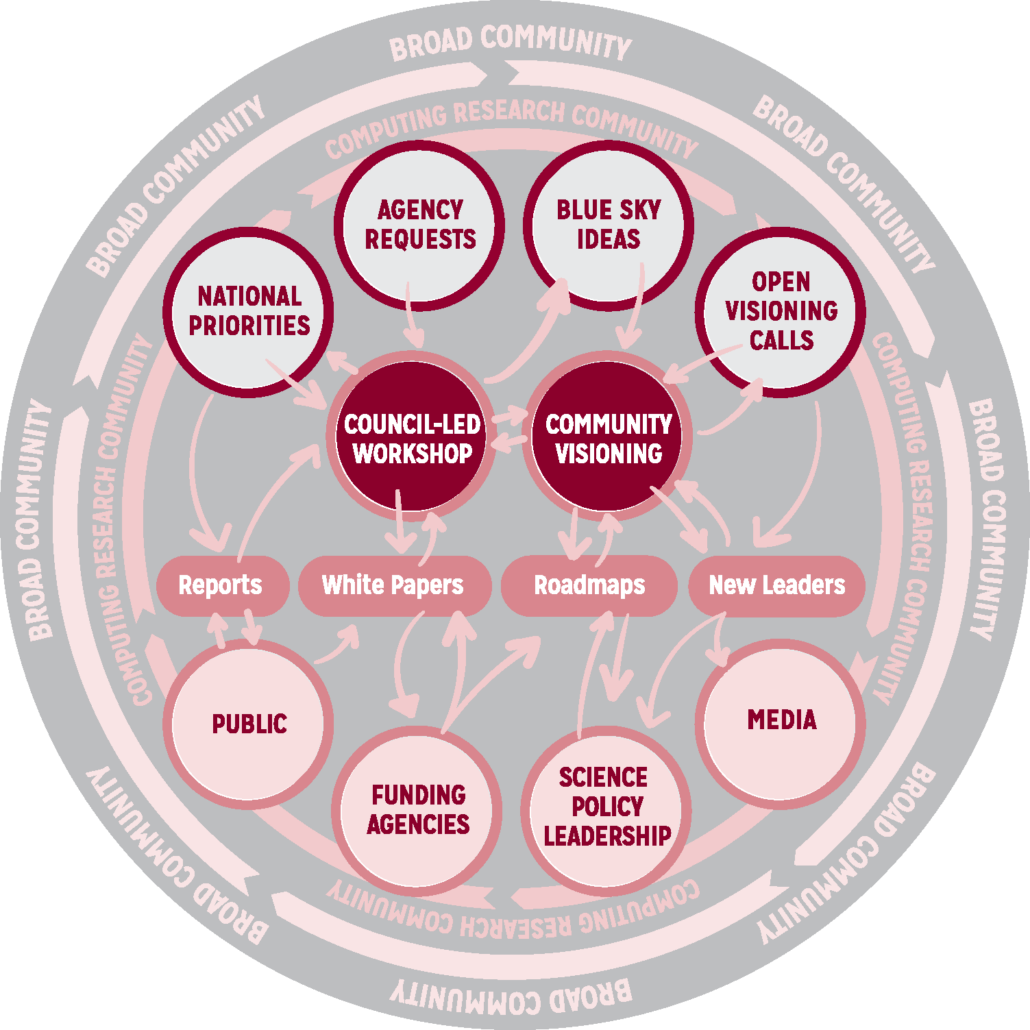
Computing has broad societal impacts, and the influence of CCC’s work can be seen across topics and subfields of computing, including health, climate, AI, robotics, hardware security, cybersecurity and quantum. Through its many activities, including its visioning work, CCC aims to impact thought leaders in government, academia, and industry in order to more effectively drive conversations around the future of computer and information science and engineering research.
For example, as artificial intelligence has risen in the public discourse, CCC has been at the forefront of the conversation from the beginning. CCC’s experience with its 20-Year Community Roadmap for Artificial Intelligence Research in the US shows that the path to a major success is not straight and quick–it requires a visible leadership presence, a strong network spanning the research community, a solid working relationship with policy makers, and persistence including a long-term commitment to follow through on the very best ideas. 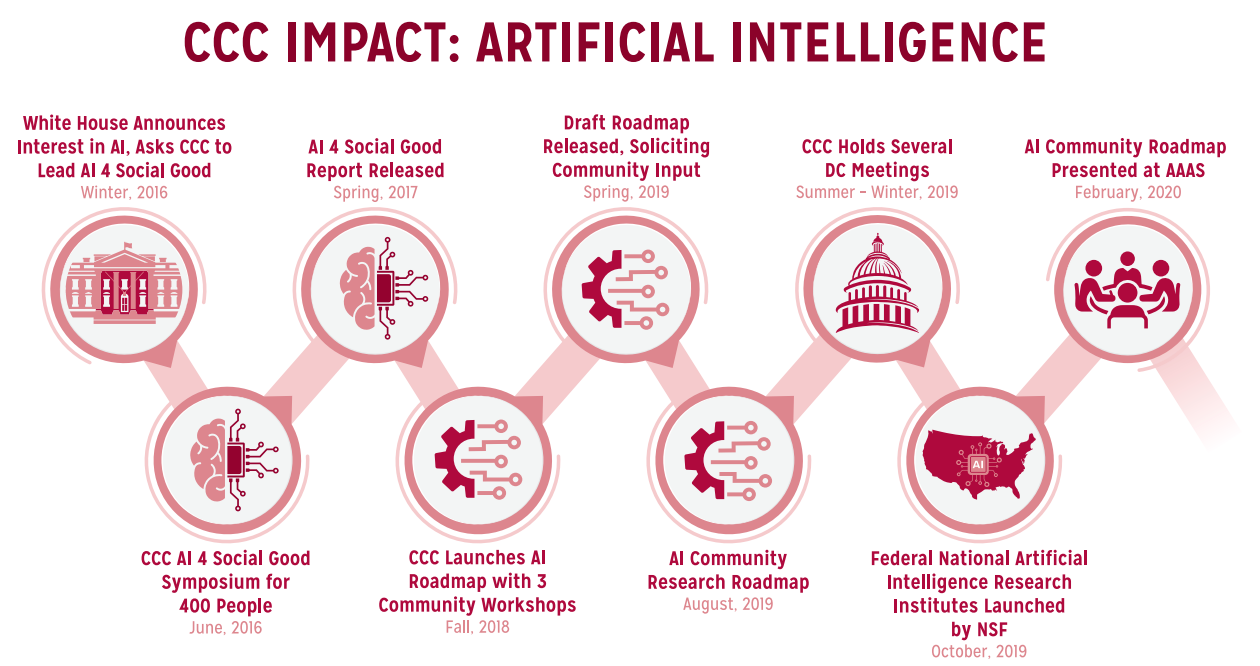
Stay Up to Date and Get Involved
CCC looks forward to continuing our visioning work within the computing research community; enabling interdisciplinary, diverse, and effective conversations at a time in which responsible and forward-thinking computing research has never been more crucial.
Follow along with CCC’s many ongoing activities by subscribing to the CCC Blog. If you or a colleague is interested in being considered for the Council, nominations are open through Friday, February 2. The Council is seeking nominations from leaders with established track records of service who will contribute great ideas, display sound judgment, and have the ability to work collaboratively to see ideas through to completion. Those selected will serve on the CCC Council for three year terms beginning July 1, 2024 and concluding June 30, 2027.



